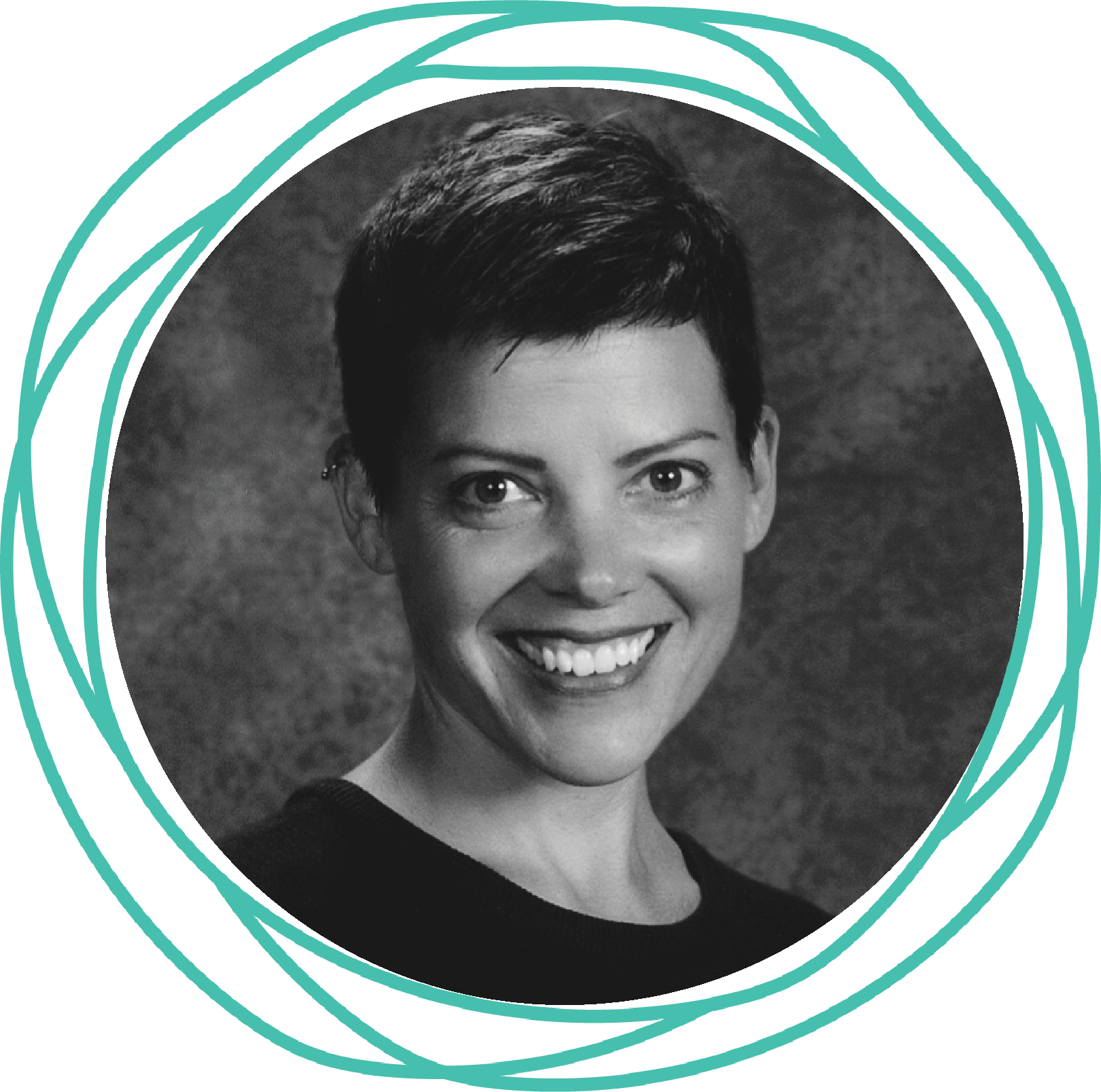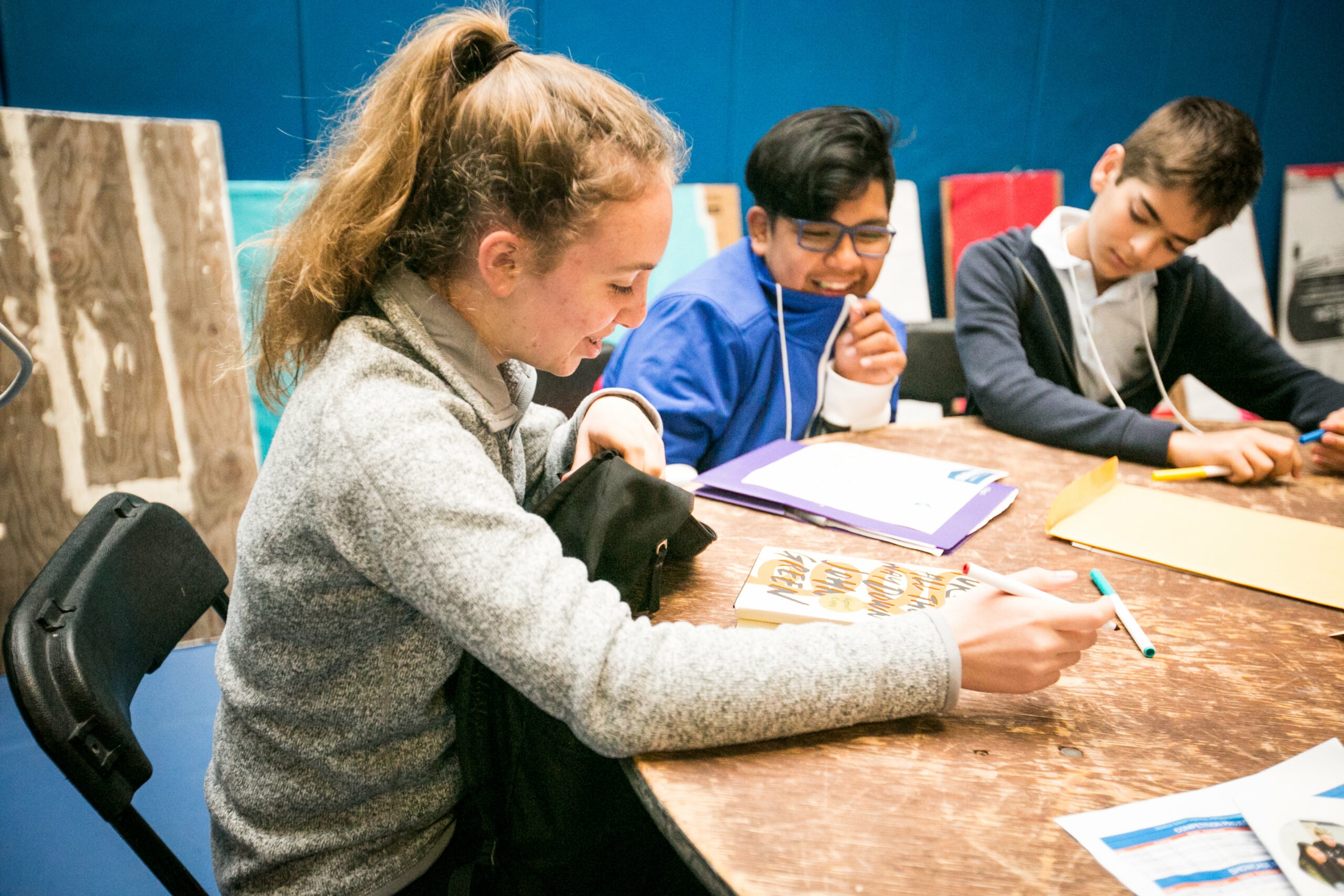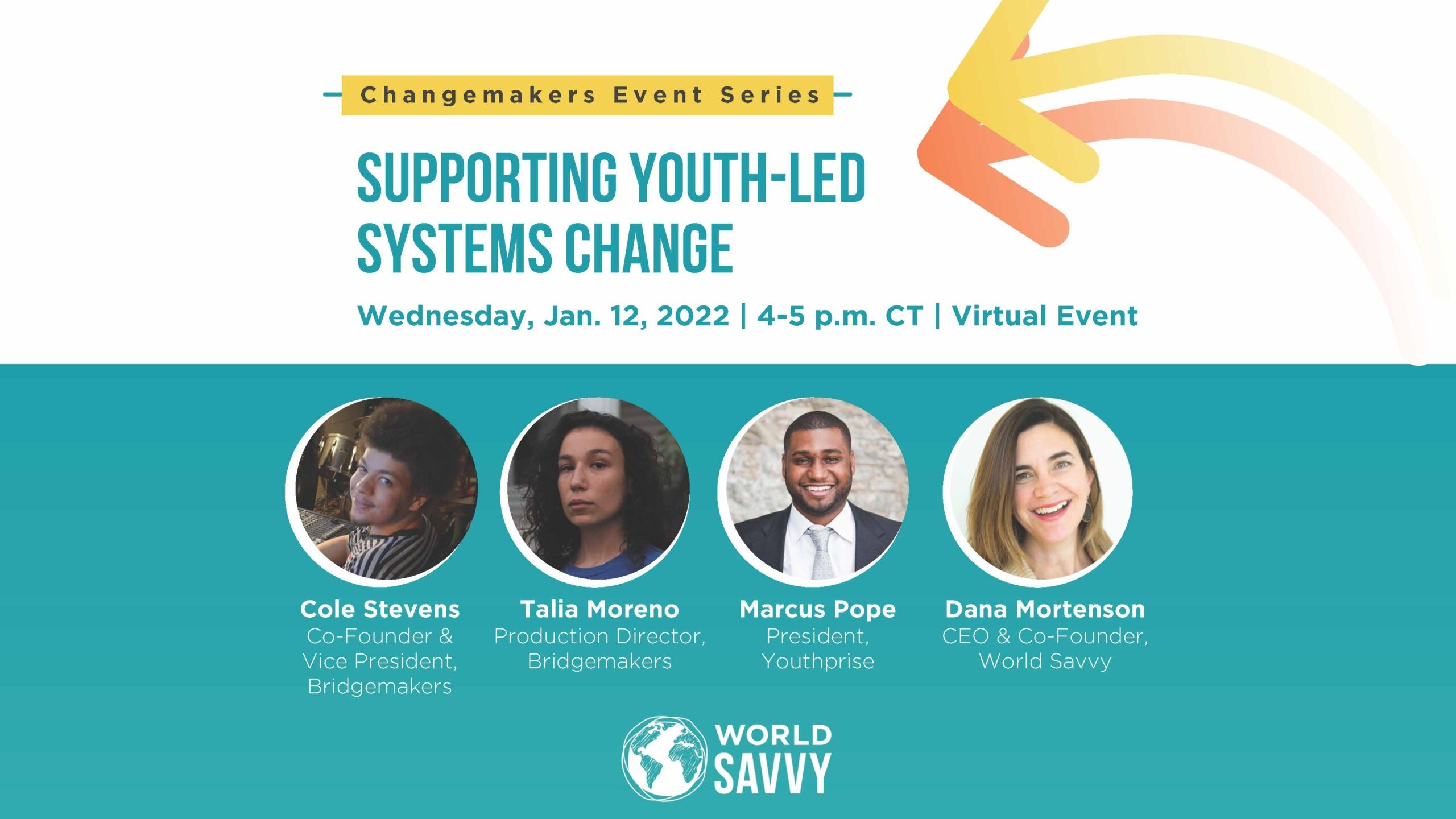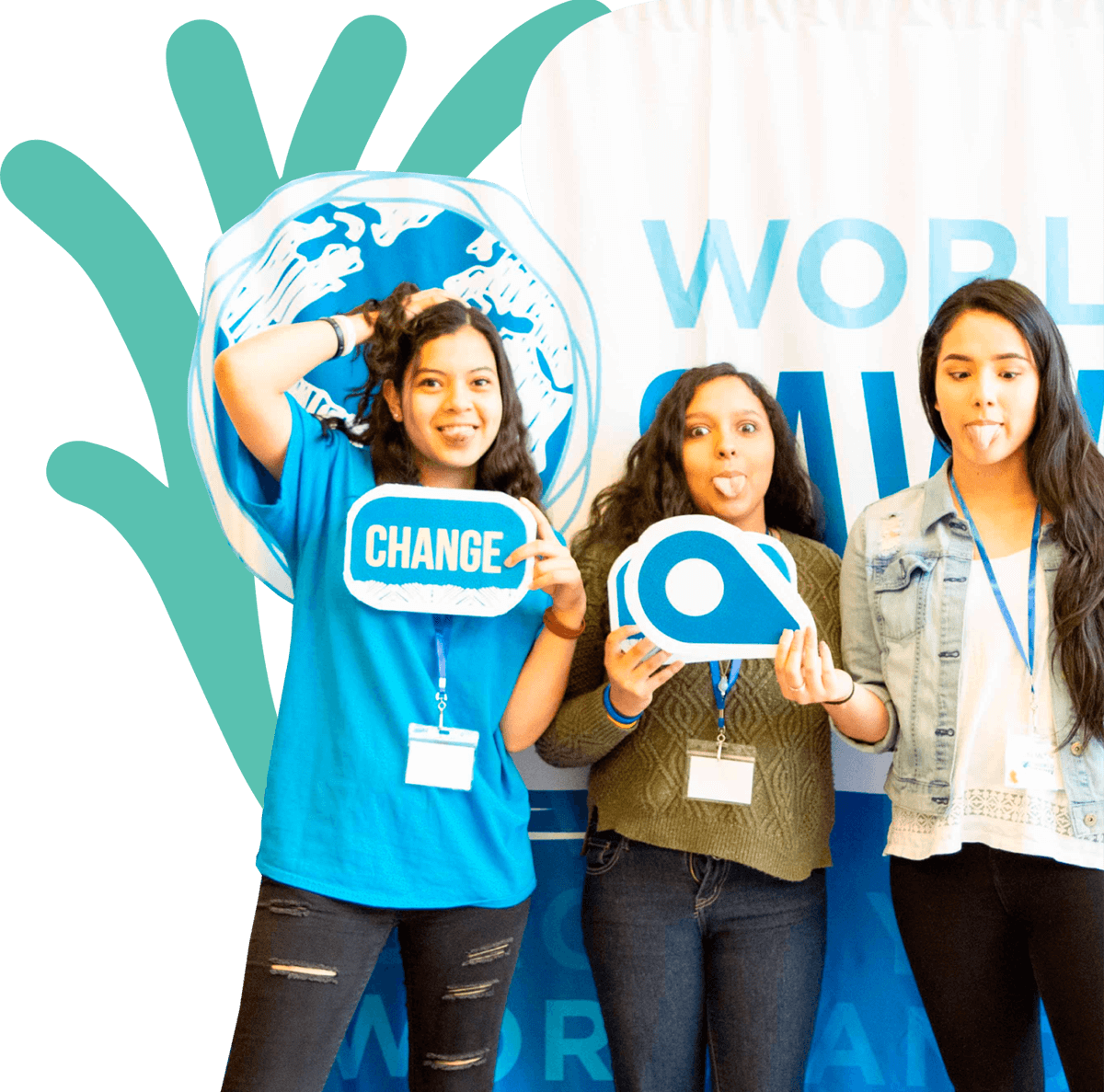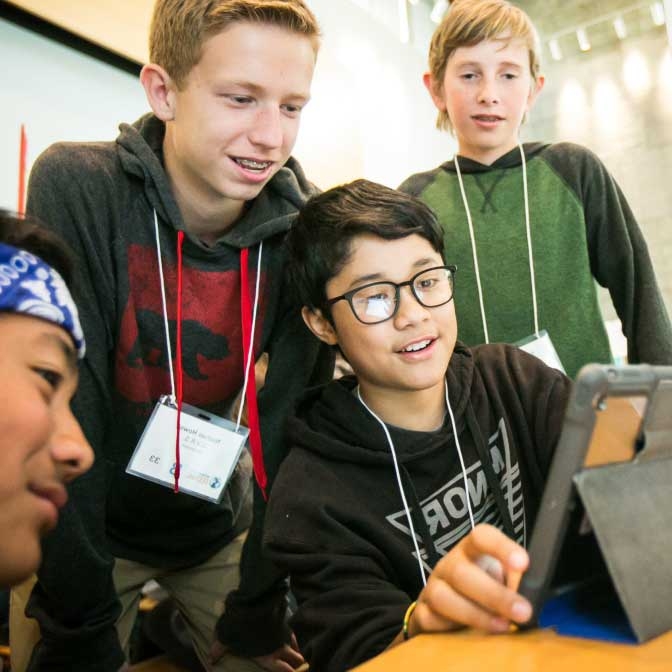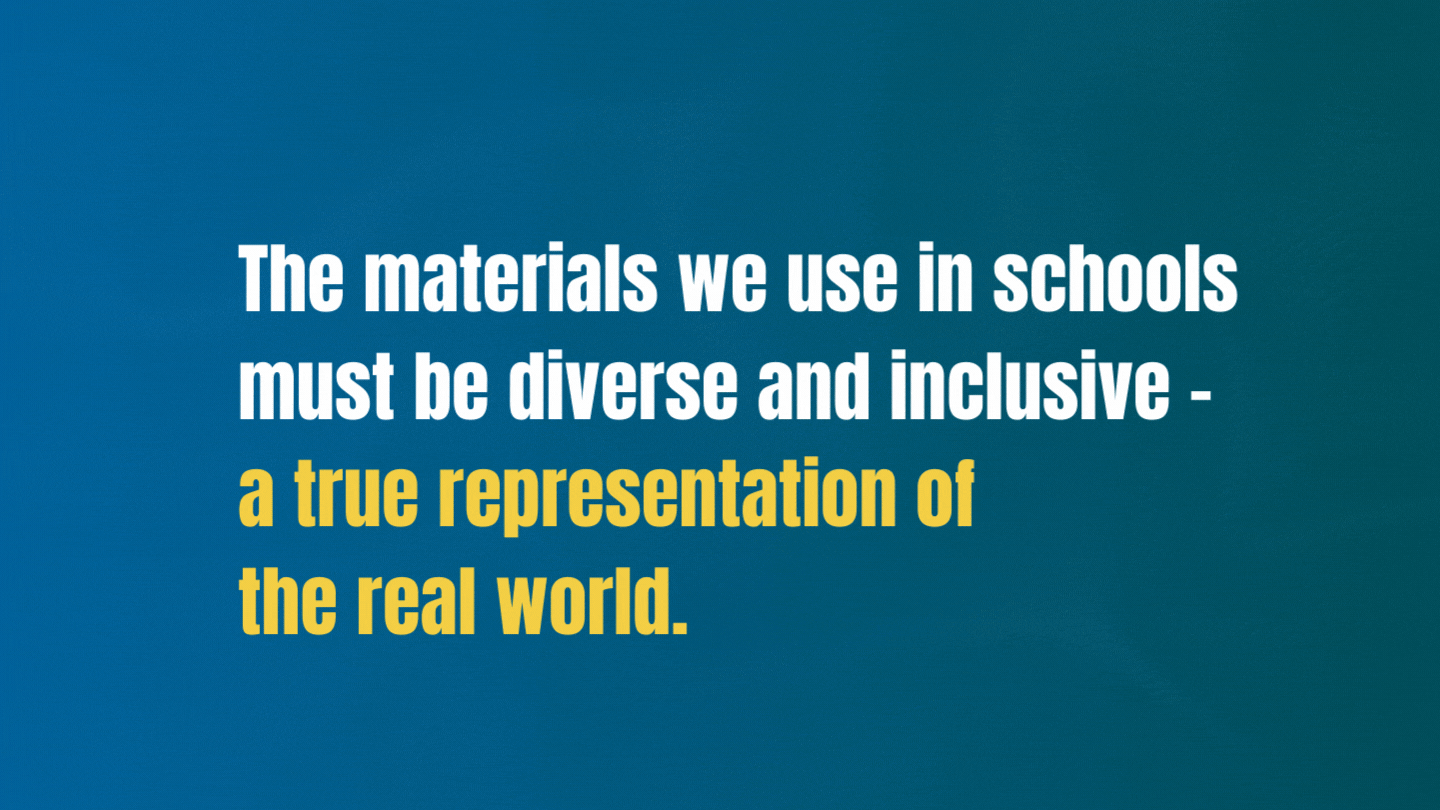
Power. Resilience. Boundless Curiosity. Humanity.
These were the themes of SXSW Edu 2022, and as I moved around from keynote to workshop to podcast to meet up, I saw these themes being lived out and explored.
As a former classroom teacher and current staffer at a nonprofit organization whose mission is to educate and prepare young people for life in a global community, I could not help but think of these themes through the lens of the student experience. How are we empowering them to take action on the issues they care about? How are we encouraging them to be curious citizens who can find comfort in ambiguity and change? And how we are seeing and honoring all the identities that our students bring to the table?
Student Voices in Materials and Curriculum:
On Tuesday morning, journalists Antonia Hylton and Mike Hixenbaugh took the stage to discuss their podcast “Southlake”, which details a Texas town’s battle over race and American identity. They were joined by librarian Carolyn Foote and author George M. Johnson who are both on the front lines of this battle as they fight to ensure that libraries and schools are places where all students can see themselves and have access to diverse stories that show the true breadth of humanity. It was heartening to hear how these individuals were challenging the playbook used by parents and school boards across the country to ban books and curricula that elevate the stories of marginalized groups. It was also a call to action.
The materials we use in schools must be diverse and inclusive – a true representation of the real world.
In addition, school should be a place where students explore their own identities and learn to appreciate the identities of others. We need only look at the baseless invective about Critical Race Theory and the vicious laws passed in both Texas and Florida that aim to dehumanize the most vulnerable among us to know that our country is failing to embrace and honor the experiences of ALL who live here. It is scary for teachers to wade into these “debates” and put themselves in the path of angry parents and legislators, and I do not want to underestimate how hard that is. But we also have to think about the students whose identities are being maligned and erased from the school experience; they need us. As English teacher Lamar Timmons-Long said during his meet-up about Civics Education, “If the materials I choose don’t encourage my students to think about who they are and who they want to be, then I’m not doing my job as an educator.”
Student Voices in the Classroom:
If we want young people to feel empowered and curious about the world, then we have to elevate their voices inside the classroom.
Teachers need to design curricula that can adapt to the interests and needs of the students in front of them. We need to focus less on the content being taught and more on the WAY we are teaching it. How can we create processes for learning that allow us to respond to student needs and interests while also ensuring that we are preparing them for life in a complex and diverse world? If we can see curriculum as not just WHAT is being taught but HOW things are being taught, we can create classrooms that are both academically rigorous and responsive to student interests and needs.
We do not have to sacrifice rigor or skill development when we center student voice and agency
As we heard during the workshop from World Savvy’s Chief Program Officer, Mallory Tuominen, and Finnish educator and consultant Petteri Elo, phenomenon-based learning is an effective way to both center student voice and develop the essential skills that young people need. In order to call something “Phenomenon-based Learning”, the phenomenon must come from a student’s own lived experience–the starting point is something to which the student is connected. This sets it apart from project-based learning, which could be about anything from Ancient Rome to WWII. But while the starting point is more personal, the learning process is the same. This proves that we do not have to sacrifice rigor or skill development when we center student voice and agency–it is not one or the other. In fact, when students have a real hand in their own learning, when they feel seen and valued, and when they know their ideas matter, they will perform better.
Student Voices in the School:
For far too long, education has been something that happens TO students, not WITH them.
We often talk of parents as being our partners in education, but rarely if ever do we talk of students in the same way. As we come out of the pandemic and begin to rethink how we do school, it is imperative that we include students in these conversations. Want to know what schedule would work best for your students? Ask them. Want to know what curriculum changes will benefit students most? Ask them. As Secretary of Education Miguel Cardona commented during his keynote on Wednesday morning, “We serve THEM. They are the experts in what they need. They have to have a seat at the table.”
Centering student voices and honoring the diverse experiences they bring to our schools is how we ensure they are prepared to positively engage in this complex and ever-changing world. When we empower students to make choices and take action, we encourage their curiosity. By providing them with a diverse array of stories and voices, we give students space to explore the issues they actually care about. When we help them find comfort in ambiguity and change, we build their resilience. And when we incorporate their stories into the curriculum and let their voices shape our schools, we honor their humanity.
We cannot lose our sense of urgency to transform our education system into a place that serves everyone, and students must be partners in this work.
